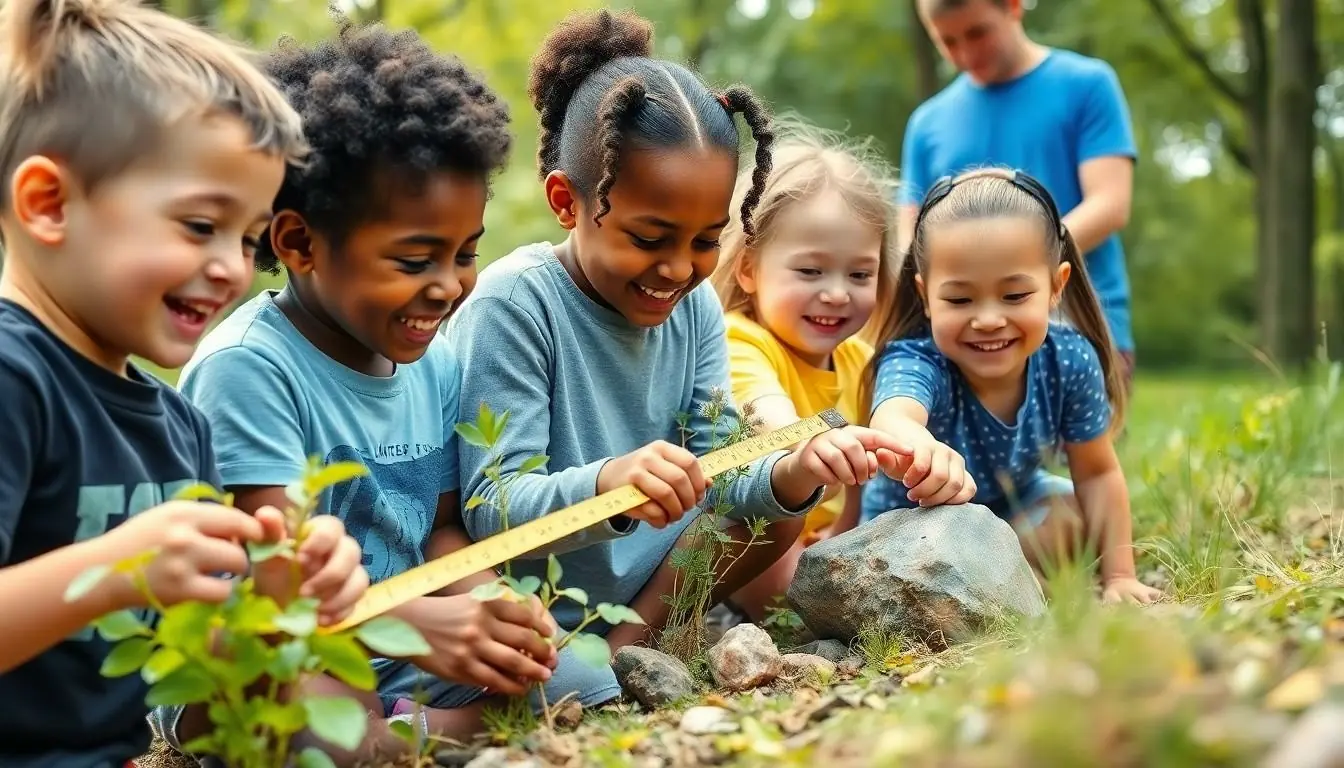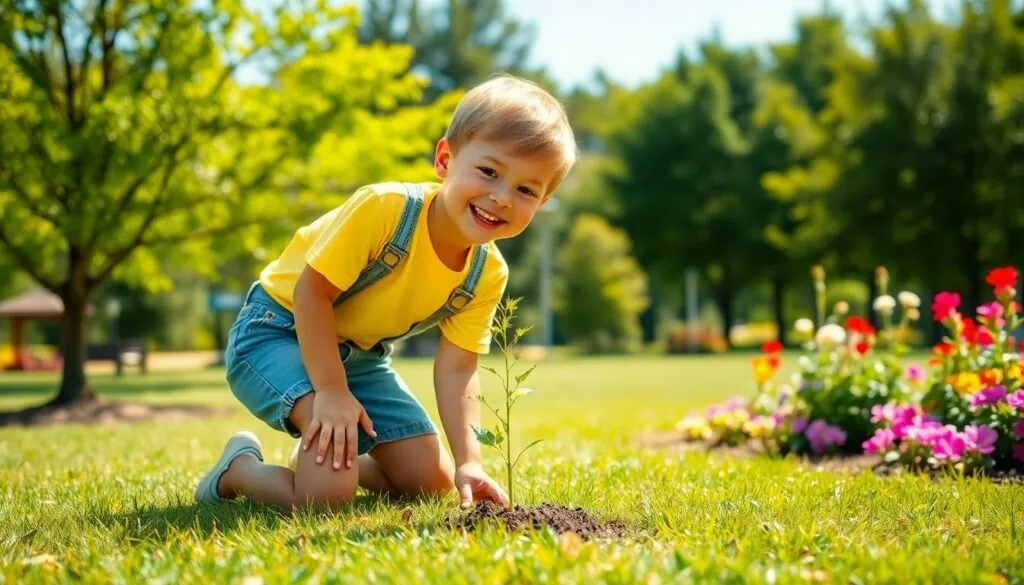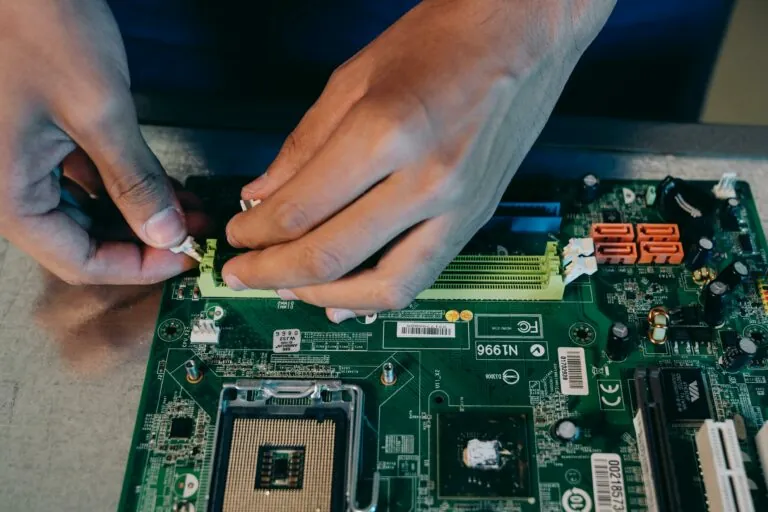In a world where screens often steal the spotlight, the importance of conservation in child development can’t be overlooked. Imagine a future generation that understands the value of nature, not just as a backdrop for selfies but as a vital part of their well-being. Teaching kids about conservation isn’t just about saving the planet; it’s about shaping responsible, empathetic individuals who appreciate the little things—like a worm’s hard work in the garden or the majestic trees that provide shade during summer picnics.
When kids learn to care for their environment, they’re also nurturing their own growth. Engaging with nature boosts creativity, reduces stress, and even improves focus. So, why not sprinkle a bit of fun into the process? After all, who wouldn’t want to be a superhero for the planet? Let’s dive into how conservation can be a game-changer in child development, turning tiny hands into mighty protectors of the Earth.
Table of Contents
ToggleUnderstanding Conservation In Child Development
Conservation in child development involves recognizing the value of the environment and the necessity of protecting it. This understanding shapes children’s perspectives, fostering a sense of responsibility toward nature.
Definition of Conservation
Conservation refers to the sustainable management and protection of natural resources. It encompasses practices aimed at safeguarding ecosystems while allowing future generations to experience their benefits. Children grasp conservation through experiential learning. Engaging in activities like gardening or nature walks enhances their awareness of local flora and fauna. These experiences teach kids about habitats, biodiversity, and the impact humans have on the environment. Promoting these concepts cultivates a deep-rooted respect for nature. This respect is essential for nurturing environmentally-conscious adults.
Importance in Early Childhood
Early childhood serves as a critical window for instilling conservation values. During this phase, children develop fundamental cognitive and emotional skills. Learning about conservation encourages empathy toward living beings and ecosystems. Nature-based activities strengthen their connection to the environment. Studies show that kids who engage with nature exhibit improved creativity and focus. Additionally, exposure to outdoor environments reduces stress and anxiety. These benefits highlight the importance of integrating conservation education into early childhood programs. Practicing conservation empowers children to become proactive stewards of the planet.
Key Concepts in Conservation

Understanding key concepts in conservation enhances children’s developmental journey. Engaging with these ideas early shapes attitudes toward nature and promotes responsible behaviors.
Piaget’s Theory of Cognitive Development
Piaget outlines how children progress through different cognitive stages, influencing their understanding of conservation. He suggests that children move from a concrete operational stage to a more abstract level as they age. In the concrete stage, kids may struggle with concepts like volume and mass, focusing instead on visual appearances. As they transition to the formal operational stage, their ability to reason about conservation improves. This growth allows them to comprehend relationships among objects, encouraging thoughtful consideration of environmental impact. Recognizing these cognitive shifts helps educators tailor their conservation teachings to each child’s developmental level, enhancing engagement and comprehension.
Stages of Conservation
Three critical stages of conservation emerge in child development. The first stage involves preoperational children, who often perceive changes in appearance without recognizing that quantity remains unchanged. For example, if water shifts from a wide bowl to a tall glass, they may think the glass contains more. The second stage represents the transition to concrete operational thinking, where children begin to understand conservation concepts through hands-on experiences. They start to grasp that rearranging objects doesn’t alter their volume or number. Finally, the third stage encapsulates fully developed reasoning about conservation principles. Children confidently articulate these ideas and apply them in various scenarios, reflecting their evolving understanding of environmental stewardship. These stages underscore the importance of experiential learning in fostering deep connections with conservation concepts.
Factors Influencing Conservation Skills
Many elements contribute to the development of conservation skills in children.
Age and Developmental Milestones
Children’s ability to understand conservation concepts significantly correlates with their age. At the preoperational stage, children focus on appearance, struggling to grasp quantity. Key developmental milestones mark the transition to concrete operational thinking. As they engage in hands-on experiences, children begin recognizing that the amount remains constant despite changes in form. This shift enhances their comprehension of conservation principles. Progressing to the formal operational stage, older children articulate complex ideas about environmental impact. Greater reasoning ability fosters a deeper understanding of conservation, underscoring the importance of age-appropriate education strategies.
Environmental Influences
Surroundings play a vital role in shaping children’s conservation skills. Engaging with nature encourages exploration and promotes curiosity about the environment. Access to green spaces and outdoor activities provides opportunities for hands-on learning. Family practices around sustainability lay the foundation for children’s attitudes toward conservation. Positive reinforcement from peers and adults impacts their willingness to adopt eco-friendly behaviors. Schools that prioritize environmental education significantly contribute to children’s understanding of conservation concepts. This collaborative approach empowers children to take an active role in protecting the planet.
Strategies to Foster Conservation Skills
Fostering conservation skills in children involves engaging them in meaningful educational activities and empowering parents and caregivers to support these values.
Educational Activities
Experiential activities enhance children’s understanding of conservation. Gardening offers hands-on experience, allowing kids to learn about plant life cycles and ecosystems. Nature walks expose them to various habitats and biodiversity. Implementing art projects, such as creating recycled crafts, makes learning about sustainability interactive and fun. Incorporating games that simulate ecological balance encourages problem-solving and critical thinking. These activities inspire a sense of responsibility for the environment while developing cognitive and emotional skills crucial for their growth.
Role of Parents and Caregivers
Parents and caregivers play a vital role in nurturing conservation skills. Modeling eco-friendly practices at home teaches children the importance of sustainability. Engaging discussions about environmental issues foster awareness and empathy. Providing opportunities for outdoor exploration reinforces children’s connection to nature. Utilizing resources like books and documentaries about animals and ecosystems enriches their understanding. Encouragement and positive reinforcement from adults significantly boost children’s confidence in adopting eco-conscious behaviors. By creating an environment that values conservation, caregivers instill lifelong respect and stewardship for the Earth.
Fostering a deep connection to nature during childhood is vital for developing responsible and empathetic individuals. By integrating conservation education into daily activities, children not only learn about the environment but also cultivate essential skills that shape their attitudes toward sustainability. Engaging in hands-on experiences allows them to grasp complex concepts while promoting creativity and emotional well-being.
As they grow, these early lessons in conservation can lead to lifelong habits of stewardship and respect for the planet. Parents and caregivers play a crucial role in this journey, creating environments that nurture these values. By prioritizing conservation in child development, society can empower the next generation to become proactive protectors of the Earth.



